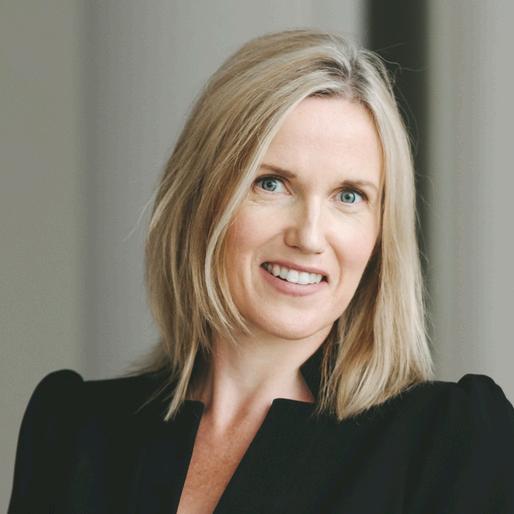Navigatingseparation: insightsfromour YouGovsurvey

Start Prenups: protecting your future




Earlier this year, Mills & Reeve’s family and children team asked YouGov to survey married people online about their views on several topical areas in family law as well as their approach to family disputes. The results make for interesting reading!
This report, based on the results from over 800 married people surveyed, explores prenuptial agreements (otherwise known as prenups) and the reasons behind the changing attitudes towards them in the UK.
Prenuptial agreements are often associated with celebrities and the wealthy who want to protect their assets in case of a divorce. But according to our research, prenups are becoming more popular among younger generations who believe they should be mandatory for all couples who tie the knot.
All figures, unless otherwise stated, are from YouGov Plc. Total sample size was 2004 adults, 803 of which were adults based in England and Wales who are either married or in a civil partnership. Fieldwork was undertaken between 19th - 22nd January 2024. The survey was carried out online. The figures have been weighted and are representative of all GB adults (aged 18+).

Page 1 - Generation prenup
Page 4 - Unromantic or a sensible approach to the future?
Page 5 - The international landscape
Page 7 - Protecting the business
Page 9 - Safeguarding family wealth
Page 11 - A smart choice for sport and media stars
Page 13 - Separation during fertility treatment Page 15 - Explaining Family Law podcast
Page 16 - Get in touch

Mills & Reeve’s recent findings indicate younger generations are taking a “business like” approach to marriage and prenuptial agreements.
Close to half (49%) of those aged 25-34 said prenups should be compulsory, in contrast to 26% of over 55s. Those aged 45-54 share a similar stance to the older age group, with just 25% believing prenups should be mandatory for marrying couples.
Additionally, those between the ages of 18 and 24 also believe in the importance of prenuptial agreements with over a third (36%) believing that prenups should be compulsory.
This trend aligns with insights from The Marriage Foundation, which reported that since the year 2000, approximately 20% of UK marriages have included such agreements, indicating a significant shift in marital practices.
When planning your dream wedding, it is assumed that splitting up and dividing assets would be the last thing on your mind.
Mills & Reeve partner Jane Ingleby believes one of the reasons for this shift is that people are marrying later in life after establishing more financial stability, and so the desire to protect pre-marital assets has grown.
“Inevitably later marriages means that individuals are likely to have already established their careers and built up their own assets by the time they get married. The legal presumption that all assets of a marriage would be split equally simply does not sit well for most, nor reflect the reality of modern relationships.
“A prenup will clearly outline the financial position of both parties at the time of marriage and can ring-fence the assets that were brought into the marriage.”
Jane Ingleby (she/her) Partner, Mills
& Reeve


“While prenups may seem unromantic, couples can choose to regulate control of their finances and, if the worst did happen, decide how they would divide their assets on divorce with less conflict and distress.”
Jane Ingleby (she/her) Partner, Mills & Reeve

There’s still a long way to go before prenups become enforceable in England and Wales as they are in many other European countries including Germany, Spain and Portugal.
Landmark case of Radmacher v Granatino changes the approach to prenuptial agreements in England and Wales, with the Supreme Court setting clear guidance on courts giving more weight to prenups and when they should be binding.
The Law Commission publishes their report, Matrimonial Property, Needs and Agreements, which recommends the government introduce legislation to enable "qualifying nuptial agreements" to be legally binding and enforceable by English and Welsh courts.
A decade on, the law has not changed.
Prenups remain shrouded by misconceptions and are often misrepresented as an agreement that can only ever benefit one person. In fact, a wellformed prenup will protect both parties making sure that there is sufficient provision to meet each person’s needs as well as any children they might have.
Under the current law, prenuptial agreements are not automatically legally binding but, provided they are drawn up properly and fairly, courts typically consider them binding. However, ten years on since the 2014 report, the Law Commission is taking another look at prenups with plans for a scoping paper to be published in November 2024.
Despite the slow pace of reform, courts often consider a well-written prenup when making decisions. For those considering entering into a prenuptial agreement, it’s vital to receive legal advice from a specialised family lawyer.

While some may see them as unromantic or unnecessary, prenups offer several benefits including clarity, certainty and control over their partner’s financial future.
Data from Mills & Reeve’s YouGov survey shows that while 53% of those surveyed were generally opposed to compulsory prenups, that statistic is heavily influenced by the views of the older, married demographic of participants who likely find themselves unaffected by the implications of a divorce.
Opposition to prenups can often stem from the unpredictable nature of life – with 43% of non-working individuals and 30% of females citing this as their reason.
Those aged over 36 are more likely to oppose prenups due to life's uncertainties, reflecting this group’s greater likelihood of experiencing life changing events such as having children, economic instability, pandemics and other global events affecting career stability.
"We've noted an upward trend in clients preserving individual bank accounts and separately managing their financial affairs, possibly reflecting a shift towards contemporary social norms."
Jane Ingleby (she/her) Partner, Mills & Reeve
These mixed opinions tell us that there seems to be a conflict between the potential for a prenup to provide certainty versus its capacity to adapt to changing circumstances.
For those who are married or considering marriage, tailored legal advice is incredibly important to understand how a prenup could apply to individual circumstances.


In an increasingly globalised world, international prenuptial agreements are on the rise due to more international marriages, families owning assets abroad and non-UK residents with wealth in their home countries.
There is a misconception that a prenup in one country will be enforceable in another which isn’t always true. With divorce laws varying significantly in different countries, there are many factors to consider.
“There may be need for foreign law advice, this might include considering the choice of law or jurisdiction where more than one could be applicable. There may also be a benefit in a particular foreign jurisdiction of entering into a mirror agreement post marriage, a detail that could make a difference to the validity of the prenup.”
Stephanie's client was an English national with business interests and property in England as well as inheritance from his family. He was engaged to a non-UK resident, and the two were considering plans to relocate to either England or her home country in the longer term.
The client approached Stephanie looking for a prenup to protect pre acquired wealth and inheritance.
Stephanie sought initial advice from an international lawyer as to the chance and effect of the client’s spouse pursuing divorce and financial claims outside of the UK. They advised to enter a postnup in the country of residence, as well as a prenup in England, for the best protection.

Stephanie Douthwaite (she/her) Principal Associate, Mills & Reeve


Stephanie prepared an English prenuptial agreement which was reviewed by the international lawyer for potential enforceability issues.
It was important for the client to understand the potential exposureeither country may have jurisdiction to entertain a divorce in the future depending on circumstances at that time.
Other considerations in drafting included comprehending the property law of each country to accurately represent the desired outcome as it would apply to a family home in the UK or the other country.

“It is important to understand property law abroad as it may be that a certain property transfer or transaction that the couple are envisaging is not permissible under property law in that country.”
Stephanie Douthwaite (she/her) Principal Associate, Mills & Reeve
For business owners, prenuptial agreements offer a particularly strong form of protection. An inherent consideration when owning and running a business is managing ongoing risk and protecting both what has already been built and the business’ future growth.
In the corporate arena, business owners can protect their rights, shareholding and business assets as well as income position through shareholder agreements and resolutions, and the company articles of association. Equally, business owners and their business partners may have considered what happens to their shareholding in the event of their death and created a will to protect their interest.
But what happens to their shareholding in the event of a divorce?
If necessary, the court has the power to order the transfer or sale of shares owned by a party to the marriage. This is a big risk to businesses and the only real way to mitigate it is through a prenup which seeks to protect the individual’s shareholding. In fact, it’s becoming increasingly common for stakeholders in a business to make prenuptial agreements a requirement for their fellow shareholders to protect the future of the business.


“We in the family and children team work closely with our corporate colleagues to discuss protecting owner managed businesses from the impact of divorce. We encourage holistic wealth protection conversations at all stages of the business life cycle: whether incorporation, growth and succession planning, or when working towards exit or liquidity events. A prenup, particularly when paired with appropriate company articles and Shareholders’ Agreements, can prevent shares being transferred to a divorcing spouse, protect the business from the risk of a court-ordered sale, and effectively ringfence the value represented by the business assets.”
Frances Bailey (she/her) Partner, Mills & Reeve
Older generations often have concerns about how best to ensure that their testamentary intentions will be fulfilled if their child or grandchild’s relationship breaks down, and for lots of families this is how a conversation around nuptial and civil partnership agreements starts.
These agreements remain the best way to protect a family member’s inheritance from being attacked on a divorce.
Agreements can stipulate (often long before it has materialised) that an inheritance should be ring-fenced from any sharing claims and place significant restrictions on the way it can be used to meet a spouse’s needs, if it can be used at all. The same is true for lifetime gifts, whether given as part of estate planning or to help the next generation purchase a property, for example. In fact, this is an important way that prenups can benefit a couple during their marriage while putting safeguards around it should the marriage fail.
“It’s not uncommon for Family Charters to require family members to enter into a nuptial or civil partnership agreements as a matter of course, and I often advise in this context. That requirement can oil the wheels of the conversation about entering into an agreement, since it depersonalises and normalises the idea – it’s simply something that everyone does.
Joanna Grandfield (she/her) Partner, Mills & Reeve


“I’ve worked on suites of prenups for second, third and fourth generation families, drafting pro-forma prenups that reflect the Family Charter which each generation must honour and tailor to their bespoke circumstances whether that is playing a role in the family business, marrying someone from a different jurisdiction or a non-wealthy background.”
Joanna Grandfield (she/her) Partner, Mills & Reeve
Prenuptial agreements are especially beneficial for those in the sports, entertainment and media industries. For example, athletes are generally under pressure to plan financially for the future after a potentially short but lucrative career.
A prenup can effectively plan for the impact of a divorce on carefully laid financial arrangements. It can safeguard investments intended for the longer-term and can document that a divorce settlement would be met from alternative assets.
Spousal maintenance is common within this income bracket. In the case of a divorce, some may prefer a lump sum settlement whilst others may benefit from adjustable maintenance payments to allow for changes to the professional’s circumstances.
For athletes there is likely to have been endeavour and sacrifices made long before the marriage (even before adulthood) to enable the accumulation of significant wealth enjoyed later during a marriage. The evidential burden required to put forward a case to retain that wealth in a litigated divorce will often be cost prohibitive and of minimal effect.
Similarly, professionals in the media and entertainment industry can find themselves in a position where a lucrative career may be short, or perhaps ended prematurely due to negative publicity.
Careful financial planning can be compromised by an unexpected divorce, potentially further complicated by the public broadcast of the separation. Those in the media often favour the security of confidentiality clauses within a prenup, including rules around what can be posted on social media during a separation.
For wealthy individuals in the public eye, there is of course also the unavoidable risk of financial exploitation which can be swiftly mitigated by a prenup. A good legal advisor will ensure to put protection in place, despite their client’s insistence on seeing a happy future with their partner.



Mills & Reeve acted for a multi-income earning client involving various triggers for contractual renegotiation.
The complexity of the arrangements could have resulted in distrust and costly disclosure requests, as well as differing views on future earnings, during contentious proceedings.
In contrast, a prenup allowed us to ensure that each person’s lifestyle could be maintained from foreseeable resources, and susceptibility to chance was acknowledged from the offset.

The recent extension in gametes and embryos, a embryo freezing compar couples considering this plan for a future family.
Additionally, in cases such as cancer treatment impairing f only way of having biological
However, if a couple decide t embryos can be extremely co

When couples part ways, con eggs used is needed to decide what happens to the embryos. For exa one person may still want to use them, there may be an agreement t they will be donated, or the embryos may remain in storage for the maximum storage limit.

Upon separation, if one side notifies the clinic that they withdraw their consent, a running time of a year is set after which the embryos must be destroyed.
Mills & Reeve principal associate Rose-Marie Drury explains that a prenuptial or other agreement could be useful to determine the future of the embryos if a couple were to separate.


“Prenups with what While they as consen until the e prenup m minds as t they sepa embryos w would be would hav and who w responsib well as oth transporta jurisdictio divided by Rose-Marie D Principal Ass






Listen to our podcast episode on prenuptial agreements where we discuss their misconceptions, benefits and things to consider.

For any questions on the topics discussed in the report please get in touch. Click here to find out how we can help with your prenuptial agreements.

Jane Ingleby (she/her) Partner
jane.ingleby@mills-reeve.com
07767 672 207




Frances Bailey (she/her) Partner
frances.bailey@mills-reeve.com
07501 226 110
Joanna Grandfield (she/her) Partner
joanna.grandfield@mills-reeve.com
07501 470 764
Stephanie Douthwaite (she/her) Principal Associate
stephanie.douthwaite@mills-reeve.com
07768 035 548
Rose-Marie Drury (she/her)
Principal Associate
rose-marie.drury@mills-reeve.com
07484 075 466